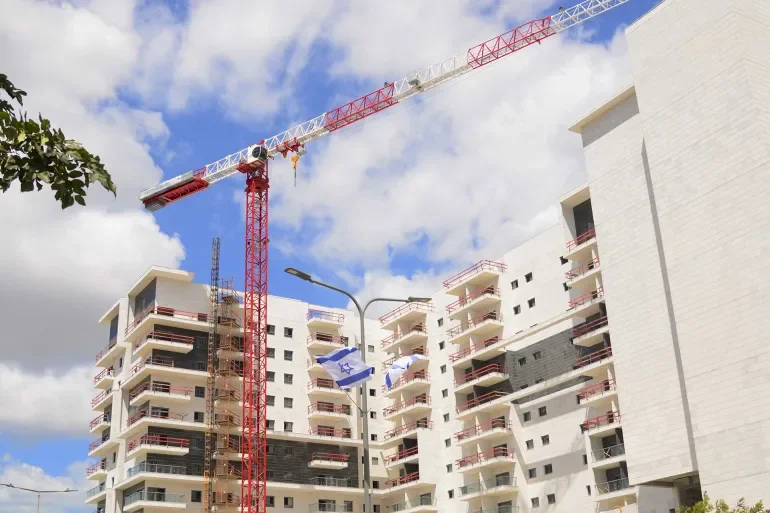
Gaza Agreement Revives Israeli Real Estate Market Amid Fears of a Financial Bubble
SadaNews The agreement between Israel and Hamas on the first phase of Trump's plan for a ceasefire and prisoner exchange in the Gaza Strip has sparked a "wave of overwhelming optimism" in the Israeli real estate market, with real estate stocks witnessing sharp jumps. However, Globes warned that this rapid rise may hide behind it a "new financial bubble" amid unstable economic fragility.
Sudden Surge in Real Estate Market
According to Globes, shares of major real estate development companies in Israel rose during trading yesterday following the announcement of the agreement, with shares of "Shikun & Binui" increasing by 10.5%, "Israel Canada" by 10%, while "Azorim" rose by 9%.
The construction index on the Tel Aviv Stock Exchange also increased by about 7%, and the real estate index by 5%, marking one of the largest sector increases in recent months.
The newspaper explained that investors "are betting that ending the war will pave the way for a new interest rate cut at the next Bank of Israel meeting in November," noting that this potential cut "will ease the financing costs for real estate companies and increase demand for purchases."
Betting on the Return of Foreign Workers and Investors
The CEO of Roitstein Real Estate, Avichai Ben Hayim, described the agreement as a "critical turning point that restores the confidence the market has been seeking since the outbreak of the war," anticipating a series of economic developments including "interest rate cuts, the return of investors, and a movement of buyers after a long wait."
He added that the return of foreign workers who "avoided coming to Israel during the war" will help in "reducing construction costs and accelerating projects."
Businessman Yossi Aferhami, head of Aferhami Company, believed the agreement "could open the door for the return of Jewish investors from abroad," with the possibility of declining construction material prices due to improved supply chains.
Excessive Optimism and Hidden Risks
However, Globes noted that "the strong rise in real estate stocks does not necessarily reflect solid economic fundamentals," pointing out that the Israeli market is still "burdened with debts and a rising government deficit."
The newspaper warned that bets on interest rate cuts "may be exaggerated," especially with the ongoing economic war in the Red Sea and the continued decline in exports.
It clarified that "the economy is living on trust and movement, but excessive optimism could lead to a backlash if the agreement falters or security tensions renew."
Trust Test in the Next Phase
Globes quoted analysts saying that "the current positive indicators are more like a temporary rebound," and that the government will face a real test of its ability to achieve long-term stability in the market.
While some see the Gaza agreement as a "major turning point" as Aferhami described it, others warn of "turning the real estate rebound into a bubble if not supported by real economic reforms."
Source: Israeli Press

The Problem of Shekel Overcrowding Worsens.. Fuel Station Owners Threatened with Closure o...

The Palestinian Economy at a Crossroads: 4 Files Awaiting Resolution

Currency Exchange Rates Against the Shekel (January 23)

Hebrew Newspaper: Israel Is Still Delayed in the Rollout of 5G Technology

Increase in Exports and Imports in November 2025 and Rise in Trade Deficit to $519.4 Milli...

Currency Exchange Rates Against the Shekel on Thursday (January 22)

Al-Akhr: We strive to implement governance instructions to ensure fairness for small inves...
